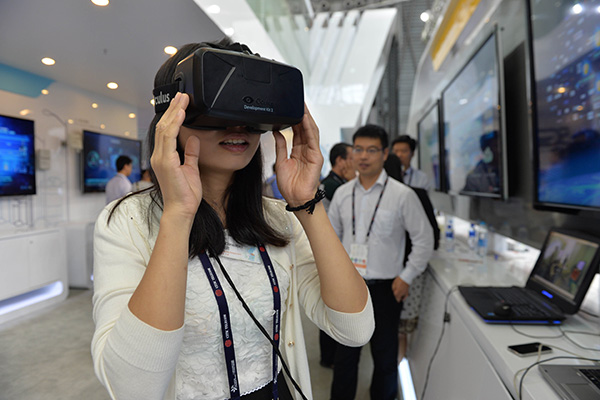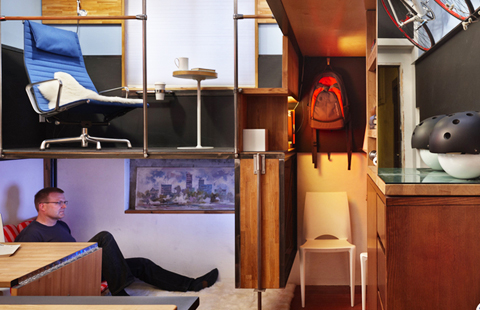China sets up alliance to give real boost to virtual reality sector
By Ma Si (chinadaily.com.cn) Updated: 2016-09-29 16:55
 |
|
A visitor tries a VR device at a promotional event in Shanghai in July. [Photo/Xinhua] |
China set up an industry alliance for virtual reality (VR) on Thursday, in a move to accelerate the application of VR in entertainment, education and manufacturing.
The Industry of Virtual Reality Alliance includes more than 170 enterprises, universities as well as research institutes.
HTC Corp, the Taiwan-based company known for its VR headset HTC Vive, and Beihang University, which has a national VR laboratory, are among them.
Zhang Feng, chief engineer of the Ministry of Industry and Information Technology, said VR gadgets have a lot in common with computers and smartphones which can host a huge number of applications, and the cutting-edge technology will play an important role in promoting China's economic growth.
But currently, China's VR industry is still in infancy and more efforts are needed to boost capabilities in computing, sensors as well as machine and human interaction. That is exactly what the VR industry alliance is going to do, he said.
According to data from Goldman Sachs, the market size of global VR industry will reach $182 billon, and the Chinese market will stand at 8.5 billion by 2020.
"We will roll out a national policy to nurture VR industry by the end of this year or next year," said Diao Shijing, director of the electronic information bureau at the Ministry of Industry and information technology.
"Also, we are designing a national standard for VR headsets, such as specifying its weight and that vendors need to ensure that consumers would not suffer from dizziness while wearing the headsets," Diao added.
The move came amid a VR tide sweeping across China. Both Internet giants Alibaba Group Holding Ltd and Tencent Holdings Ltd as well as startups are jumping on the bandwagon, in the hope of establishing a beachhead.
Alvin Graylin, head of HTC's VR business in the mainland, said the VR industry is evolving very rapidly and it is beyond many people's expectations
The firm said earlier it plans to set up more than 10,000 experience sites on the mainland by the end of the year, to compete with Sony Corp and Facebook-backed Oculus Rift for the control of the nascent sector.
To motivate more developers to create VR content, currently the most scarce industry resources, HTC launched a $100 million Vive X fund.
"Currently, more than 10,000 developers are creating VR contents on our platform," Graylin said.
- China sets up alliance to give real boost to virtual reality sector
- British retailers brace for rush on high streets during Golden Week
- Chinese investors step up to New Zealand hotel challenge
- JD.com joins hands with China United Property Insurance
- FTZs drive new opening up, mull deeper reforms
- Haier forms 'smart' alliance to further tap home appliance market
- Apple sets up first R&D center in Beijing
- 'Pigeonholes' around world


















